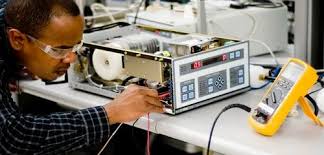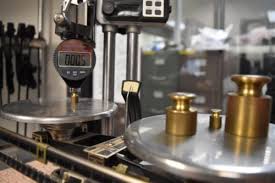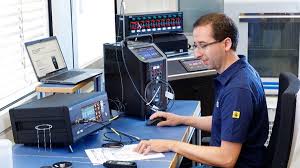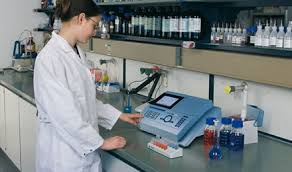Medical Translation Companies: Top Medical Translation Companies You Need to Know About
When it comes to medical translation, accuracy and precision are of the utmost importance. As the healthcare industry continues to globalize, the demand for reliable medical translation services is on the rise. In this article, we will explore some of the top medical translation companies that you need to know about. These companies are recognized for their expertise in the field of medical translation and their ability to effectively communicate vital information across language barriers. Whether you are a pharmaceutical company, medical device manufacturer, or healthcare provider, finding the right medical translation company is crucial for ensuring the quality and effectiveness of your translations. Join us as we delve into the world of medical translation and discover medical translation in dubai the leading companies in the industry.
Top medical translation companies you need to know about include Precision Language & Graphics, Foreign Translations, Lionbridge, Language Scientific, and Translate Media. These companies have a solid track record of providing accurate and reliable medical translations for a range of materials including clinical trials, medical devices, pharmaceutical products, and more. With their expertise and quality control processes, these companies are trusted by top healthcare organizations around the world.
Some top medical translation companies you should consider include CSOFT International, Trusted Translations, TransPerfect, and Moravia. These companies have a strong reputation for accurately translating complex medical documents and materials, such as medical reports, clinical trial documentation, regulatory filings, and more. They often have teams of linguists and subject matter experts with a deep understanding of medical terminology and industry regulations, ensuring high-quality and precise translations for their clients in the healthcare sector.
The Top 10 Medical Translation Companies You Should Know About
1. SeproTec: This company specializes in medical and pharmaceutical translation services, offering a team of expert linguists with knowledge of industry-specific terminology.
2. Translation Back Office: Known for its high-quality medical translation services, Translation Back Office works with experienced translators and subject matter experts to ensure accuracy and reliability.
3. Foreign Credits: With a focus on medical and healthcare translations, Foreign Credits provides tailored linguistic solutions for pharmaceutical companies, medical device manufacturers, and healthcare organizations.
4. Merrill Brink International: This leading language service provider offers comprehensive medical translation services, including regulatory compliance, clinical trial documentation, and patient education materials.
5. MediLingua: Specializing in medical and life sciences translations, MediLingua has a team of native-speaking medical translators and a strong quality management process in place.
6. SimulTrans: SimulTrans is a top medical translation company that provides language services tailored to the life sciences sector, offering expertise in medical device documentation, clinical research, and regulatory compliance.
7. CCJK: CCJK is a professional medical translation company with a proven track record in delivering accurate and culturally appropriate content for the healthcare and pharmaceutical industries.
8. Language Scientific: Language Scientific specializes in translating medical, scientific, and technical content, with a team of subject matter experts and linguistic professionals.
9. GTS Translation Services: GTS Translation Services offers a wide range of medical translation solutions, including medical device manuals, clinical trial documentation, and pharmaceutical marketing materials.
10. Translation Services USA: This company provides medical translation services for healthcare providers, pharmaceutical companies, and medical device manufacturers, ensuring linguistic accuracy and cultural sensitivity.
Navigating the World of Medical Translation Companies: A Comprehensive Guide
Navigating the World of Medical Translation Companies: A Comprehensive Guide is a comprehensive resource for professionals in the medical field who require translation services. The guide provides detailed information on what to look for in a medical translation company, including factors such as linguistic expertise, cultural understanding, regulatory compliance, and technical capabilities. It also offers tips on how to assess the quality of translations and ensure accurate and reliable communication in the medical industry. This guide is designed to help medical professionals make informed decisions when selecting a translation company to meet their specific needs.
Why Medical Translation Companies Are Vital for Global Healthcare Communication
Medical translation companies are vital for global healthcare communication due to the importance of accurate and clear communication in the medical field. These companies employ skilled translators who are not only fluent in multiple languages, but also have a deep understanding of medical terminology and concepts. This is crucial for accurately translating medical documents, prescriptions, patient records, and other important information.
In the context of global healthcare, medical translation companies ensure that healthcare providers and patients can effectively communicate regardless of language barriers. This plays a crucial role in providing quality care to diverse patient populations and helps to prevent misunderstandings that could lead to serious medical errors.
Furthermore, medical translation companies also assist in the translation of important research studies, medical guidelines, regulatory documents, and other materials that are essential for advancing global healthcare knowledge and standards.
Overall, these companies serve as a crucial bridge for effective communication in the global healthcare industry, ultimately improving patient care and safety on a global scale.
Finding a Trustworthy Partner: How to Choose the Best Medical Translation Company
When choosing a medical translation company, it is important to consider factors such as the company's experience in the medical field, their certifications and accreditations, the qualifications of their translators, their quality control processes, and their ability to meet deadlines. It is also essential to assess their understanding of medical terminology, adherence to confidentiality and data protection regulations, and their communication and customer service.
Additionally, it is crucial to conduct thorough research, read reviews and testimonials, and request samples of their previous work to assess the quality of their translations. It is also advisable to inquire about their pricing structure and any additional services they offer, such as multilingual desktop publishing or software localization.
Ultimately, finding a trustworthy medical translation partner requires careful consideration and due diligence to ensure that the company meets the specific needs and requirements of the medical industry.
The Role of Technology in Modern Medical Translation Companies
Technology plays a crucial role in modern medical translation companies by facilitating efficient and accurate translation of medical documents and communications. Translation memory tools help linguists store and reuse translated content, ensuring consistency in terminology and style across documents. Machine translation and natural language processing technologies also assist in speeding up the translation process while maintaining quality. Additionally, secure online platforms and communication tools enable seamless collaboration between translators, project managers, and clients, regardless of location. Overall, technology enhances the efficiency, accuracy, and security of medical translation services in today's digital age.
Understanding the Benefits of Outsourcing Medical Translation to Specialized Companies
Medical translation requires a deep understanding of medical terminology and knowledge of industry-specific regulations. Specialized medical translation companies have the expertise and experience to accurately translate medical documents, such as patient records, clinical trials, and pharmaceutical documents, while ensuring compliance with privacy laws and industry standards.
Outsourcing medical translation to specialized companies also offers benefits such as improved accuracy, faster turnaround times, and access to a network of qualified linguists with medical backgrounds. These companies often use technology and tools specifically designed for medical translation, which helps ensure consistency and precision in the translated content.
Additionally, partnering with a specialized medical translation company can help reduce costs and administrative burden for healthcare organizations, allowing them to focus on providing quality care to their patients. With the increasing globalization of healthcare, outsourcing medical translation to specialized companies can help facilitate communication and collaboration across borders, ultimately improving patient care and outcomes.
How Medical Translation Companies Ensure Accuracy and Cultural Sensitivity
Medical Translation companies ensure accuracy and cultural sensitivity through a combination of careful selection of qualified translators, use of specialized terminology databases, and adherence to industry-specific regulatory standards. They employ translators who are not only fluent in both the source and target languages, but also have a deep understanding of medical terminology and the cultural nuances of the target audience. Furthermore, these companies often have robust quality assurance processes in place, such as multiple rounds of review and validation, to ensure that the translated content is accurate and culturally appropriate. Additionally, medical translation companies may work closely with healthcare professionals and subject matter experts to ensure that the translations are technically accurate and culturally sensitive.
Challenges and Solutions in the Field of Medical Translation: Insights from Leading Companies
Challenges in the field of medical translation include the highly specialized and technical nature of medical content, the need for accuracy and precision in translations, and the constantly evolving terminology and regulations in the healthcare industry.
Leading companies in the field have implemented various solutions to address these challenges, such as utilizing translation memory tools to ensure consistency and accuracy, collaborating with subject matter experts to ensure the correctness of medical terminology, and staying up to date with the latest developments in the healthcare industry. Additionally, some companies have invested in training and development programs for their translators to ensure they have the necessary expertise in medical translation.
Ultimately, the field of medical translation requires a high level of attention to detail, specialized knowledge, and a commitment to maintaining the highest standards of accuracy and quality in translations. Leading companies continue to innovate and adapt to meet these demands and provide effective solutions in the field of medical translation.
Exploring the Global Reach of Medical Translation Companies in Today's Healthcare Industry
Medical translation companies play a crucial role in the global healthcare industry by ensuring that vital medical information is accurately and effectively communicated across language barriers. With the increasingly global nature of healthcare, the demand for medical translation services continues to grow. These companies provide translation services for a wide range of medical documents, including patient records, clinical trial documents, regulatory filings, and pharmaceutical information. They also often offer interpretation services for medical consultations and conferences. The ability of medical translation companies to accurately and efficiently translate medical information is essential for ensuring patient safety, conducting successful clinical trials, and complying with regulations in different countries. As the healthcare industry becomes more interconnected on a global scale, the expertise and reach of medical translation companies are becoming increasingly important.
The Future of Medical Translation Companies: Trends and Innovations to Watch
medical document translation services
The future of medical translation companies is expected to be shaped by various trends and innovations. One significant trend is the increasing demand for translation services due to globalization and the growing diversity of patient populations. Medical translation companies will need to adapt to this demand by developing specialized expertise in translating medical documents, such as clinical trial protocols, patient information leaflets, and regulatory submissions.
Another key trend is the rise of technology-driven translation solutions, such as machine translation and artificial intelligence. These innovations have the potential to improve translation efficiency and accuracy, but they also raise concerns about the quality and privacy of medical translations. As a result, medical translation companies will need to balance the benefits of technology with the need for human expertise and ethical considerations.
Furthermore, the increasing complexity of medical content and regulations will require medical translation companies to stay abreast of industry developments and standards. This includes keeping up with advancements in medical terminology, regulations for medical device labeling, and requirements for multilingual patient communication.
Overall, the future of medical translation companies will be shaped by the need for specialized expertise, technological innovations, and an evolving regulatory landscape. Companies that can adapt to these trends and innovate their services are likely to thrive in the rapidly evolving field of medical translation.
In conclusion, the top medical translation companies mentioned in this content offer high-quality, accurate, and reliable services for the healthcare industry. With their expertise in translating medical documents, such as patient records, clinical trials, and regulatory documents, these companies play a crucial role in ensuring effective communication and cross-border collaboration within the medical field. Choosing the right medical translation company can make a significant difference in ensuring the successful delivery of healthcare services globally.






